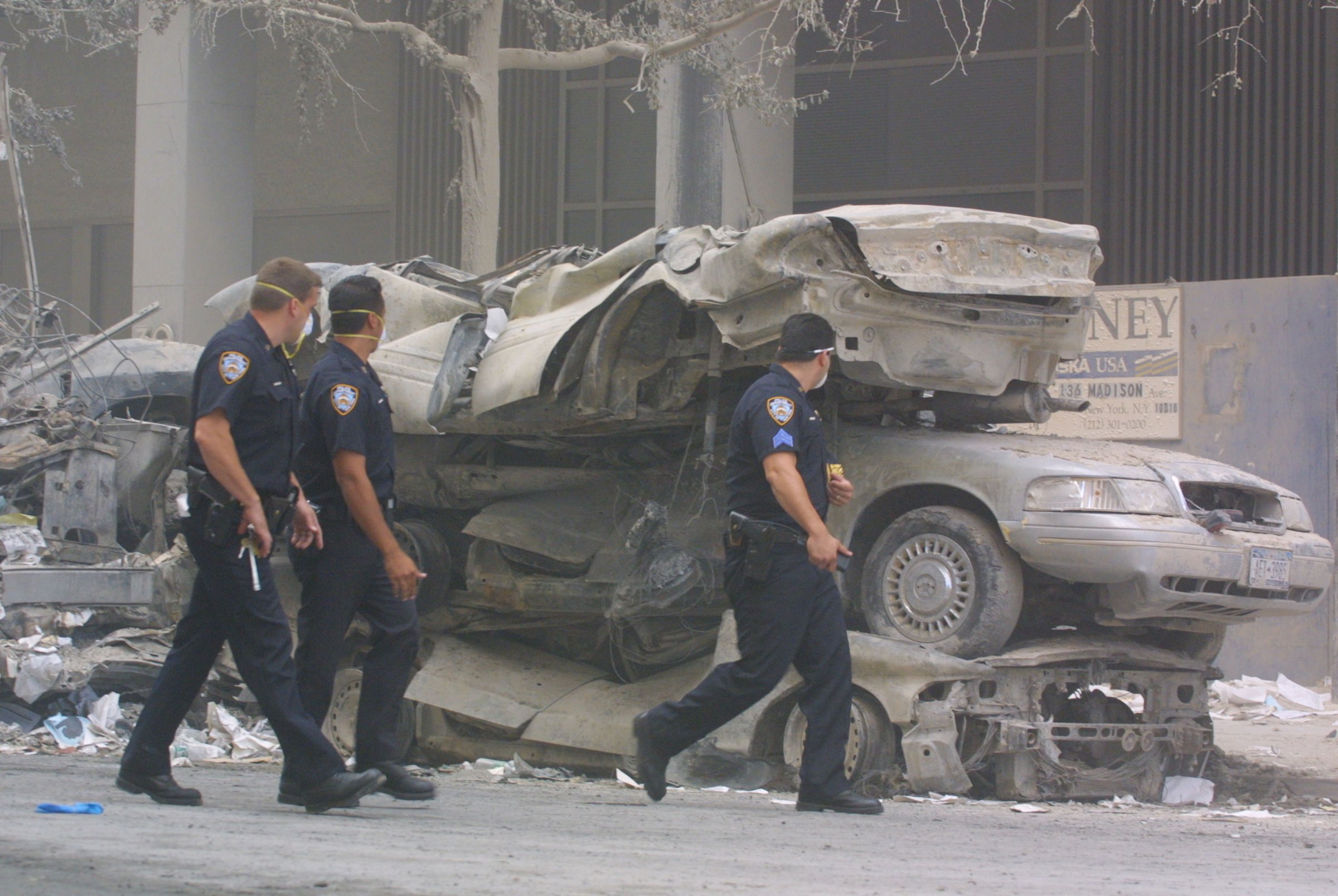
New York City police have 50% more cancer diagnoses following 9/11 than they did before the terrorist attack, according to the results of a long-term study made public Friday.
The study, obtained exclusively by The New York Post and conducted by researchers from Columbia University and Weill-Cornell Medical College, found that between 2002 and 2014 cancer rates over all in the NYPD increased about 50% compared to the period from 1995 to 2001. The largest increases happened in four relatively rare cancer types: malignant brain tumors, kidney cancer, thyroid cancer and non-Hodkin’s lymphona.
The findings may support fears that first responders to 9/11 suffered long-term health consequences from the cloud of toxic debris kicked up by the collapsing World Trade Centers, which lingered for days after the attacks. Researchers noted that there is debate as to whether improved cancer screenings over time may have affected cancer discovery rates over the courts of the study.
The study also noted that cancer rates for police tend to be lower than for the general population because police tend to be in better physical shape than the average American.
[NYPost]
More Must-Reads from TIME
- Donald Trump Is TIME's 2024 Person of the Year
- TIME’s Top 10 Photos of 2024
- Why Gen Z Is Drinking Less
- The Best Movies About Cooking
- Why Is Anxiety Worse at Night?
- A Head-to-Toe Guide to Treating Dry Skin
- Why Street Cats Are Taking Over Urban Neighborhoods
- Column: Jimmy Carter’s Global Legacy Was Moral Clarity
Contact us at letters@time.com